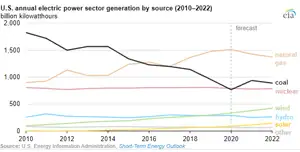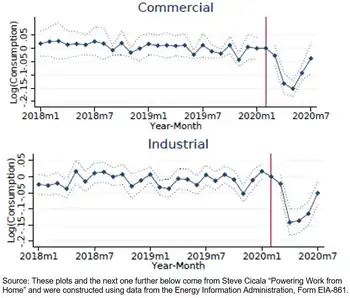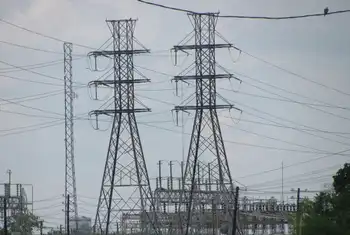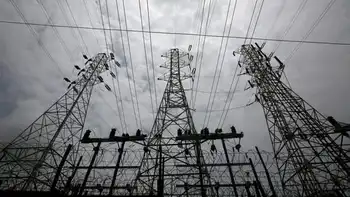Commission accepts Integrated Resource Plan for utilities
By The Dominion Post
Substation Relay Protection Training
Our customized live online or in‑person group training can be delivered to your staff at your location.

- Live Online
- 12 hours Instructor-led
- Group Training Available
As outlined in the plan, parent company FirstEnergy is exploring several options: Buying an existing plant, switching some current plants from all coal to 30-percent co-fired supplementing coal with natural gas, building a new plant or buying power from another utility or PJM -- the 13-state regional transmission organization.
While the plan generated objections and concerns from a number of green groups, and from PSC staff and its Consumer Advocate Division, the PSC noted state law only allows it to receive and accept the report.
The Legislature mandated IRPs for all state utilities in 2014. In the IRP, the utility is required to predict future power demands and evaluate its supply side and demand side customer power usage, resources available to meet that demand, and what additional resources may be required.
The goal is to spur the utility "to develop a portfolio of resources that represents a reasonable balance of cost and risk for the utility and its customers in meeting future demand."
The PSC accepted the utilities' plan on June 3. It noted that, as previously reported, the West Virginia Coal Association supported the plan for promoting the use of coal.
Energy Efficient West Virginia, the Sierra Club, the Mid-Atlantic Renewable Energy Coalition, the West Virginia Energy Users Group, West Virginia Solar United Neighborhoods SUN and West Virginia Citizen Action Group CAG, all filed comments noting objections and concerns.
Among the concerns the groups noted or alleged:
The utilities' demand projections are likely overstated.
The IRP is skewed in favor of buying a coal plant. CAG and SUN specifically indicated the Pleasants plant. Pleasants, in Willow Island, Pleasants County, is the only deregulated coal-fired plant in FirstEnergy's footprint.
A deregulated plant relies on market pricing to sell its power into the PJM system. Right now, coal's price is uncompetitive, so Pleasants can't be competitive.
A regulated plant relies on PSC rate approval. If FirstEnergy moves Pleasants into the regulated system, it's guaranteed a rate of return on investment -- a return shouldered by "captive ratepayers."
The IRP takes inadequate account of renewables and demand-side options. Wind power cost estimates were inflated.
Staff and CAD raised the concern that Mon Power may not abide by the Harrison Stipulation requiring the utilities to file a Request for Proposal RFP "at the earliest possible moment" regarding capacity procurement.
PSC comments
The PSC said in its order accepting the IRP that this one generated far more comments than any other IRP it received. It encouraged the companies to give the comments careful consideration moving forward. The PSC noted its limited power regarding IRPs: It can request further information but can't approve or disapprove them. It can only accept them.
Accepting the IRP, the PSC emphasized, doesn't imply approval of any future projects or filings.
FirstEnergy's future compliance with the Harrison Stipulation is outside the scope of this order, the PSC said. But, "we take seriously the obligations of all parties to comply with the terms of their agreements," particularly this stipulation that resulted from the highly contested Harrisonplant acquisition.
Other comments
Speaking for Sun and CAG, Earthjustice attorney Mike Soules said in an email exchange, "We were pleased with the commission's order. Although it accepted the IRP filing, the Commission took pains to emphasize that it was not approving any future proposal from FirstEnergy."
The Order also shows that the commission is aware of the problems identified by the various groups, he said, and encouraged the companies to carefully consider those comments. "More generally," Soules said, "the numerous flaws in the IRP make clear that FirstEnergy should scrap its ill-conceived plan to purchase the Pleasants coal plant." Instead, the companies should address the many flaws in their current plan.
"Doing so will protect customers from the unnecessary rate hikes that could result if Mon Power purchases another coal plant," Soules said.
FirstEnergy spokesman
Todd Meyers said in an email exchange, "We agree with the Public Service Commission of West Virginia that our Integrated Resource Plan was an informational filing only and that our IRP, as filed, satisfies state law."
Offered the opportunity to comment on the objections bulleted above, Meyers said, "It's natural to expect that other parties and groups may have different viewpoints concerning some details of the plan. But to reiterate, the IRP was an informational filing only. We did not ask the PSC for any specific action or approvals."











